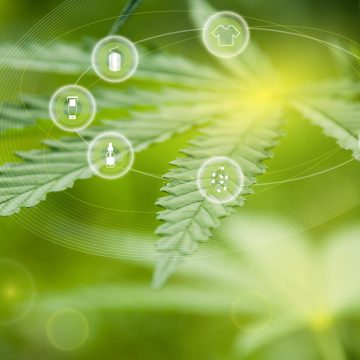With hemp, the textile industry has found a highly sustainable alternative for cotton. Hemp consumes less water and it grows faster without the need for fertilizers or insecticides. Industrial hemp also has numerous applications in the paper and automotive industry.
The Challenge
Until now, only the outside of the hemp stem could be used. But other parts of the plant also have very useful properties. Stem core, wood parts, leaves and seeds: with the right processes the entire plant can be utilised. Industrial Hemp contains almost no THC, the main psychoactive constituent of cannabis. It does contain a high amount of CBD. Muscle relaxing, anti-inflammatory and anti-epileptic properties are attributed to this medicinal oil which is extracted from the hemp. Other, new applications are found in the cosmetics industry. Hemp seeds are regarded to be a superfood with beneficial effects on joints, heart and blood vessels and memory. However to be able to utilise the entire plant for these interesting applications, a complete set of new processes was required.
The approach
Several parties were working on hemp processing projects. Some of these projects were publicly funded, some were financially supported by commercial companies. We brought these parties to the table and investigated which initiatives could be developed together. Joining forces, we have been able to speed up the development process for the most promising technologies and applications. For example at FoodTech Brainport we developed processes for the extraction of fibres, proteines and spray-dried CBD oil. The complicated lignine extraction process is further developed.
The result
Cooperation and combination of knowledge and facilities have enabled us to boost the development and commercialisation in this challenging project. We can now produce several hemp based products such as CBD oil* in our pilot plant. Step by step we are nearing the end goal: full utilisation of the hemp plant.
*CBD oil is extracted from leaves and flowers of industrial hemp. Because these parts contain a very small amount of THC, the production of CBD oil is still restricted by the Dutch Controlled Substances act. A producer of CBD can request an exemption. Abroad, legislation is often less restrictive towards the production of CBD oil. Growing and processing of industrial hemp is not restricted by Dutch law. Sales and use of CBD oil with a THC content of less than 0,2% is allowed in the Netherlands.


